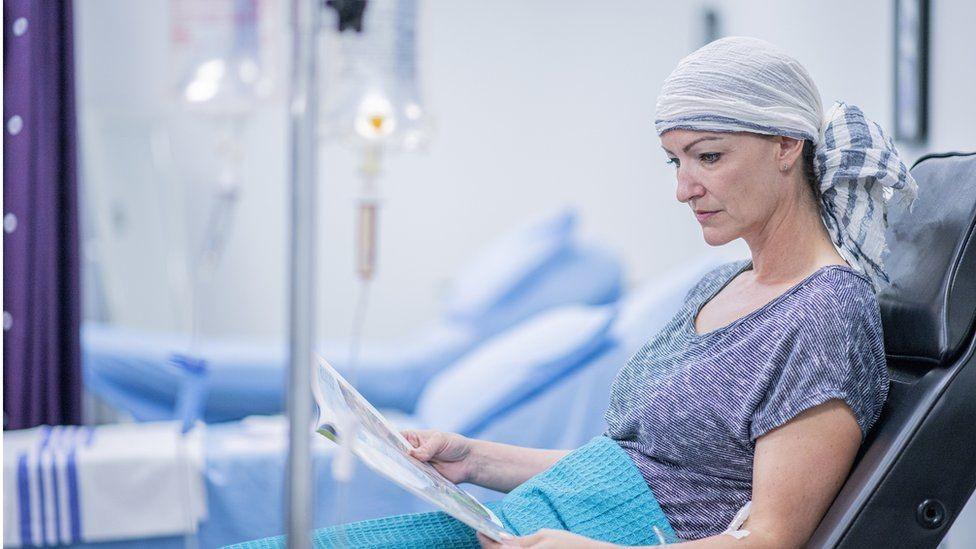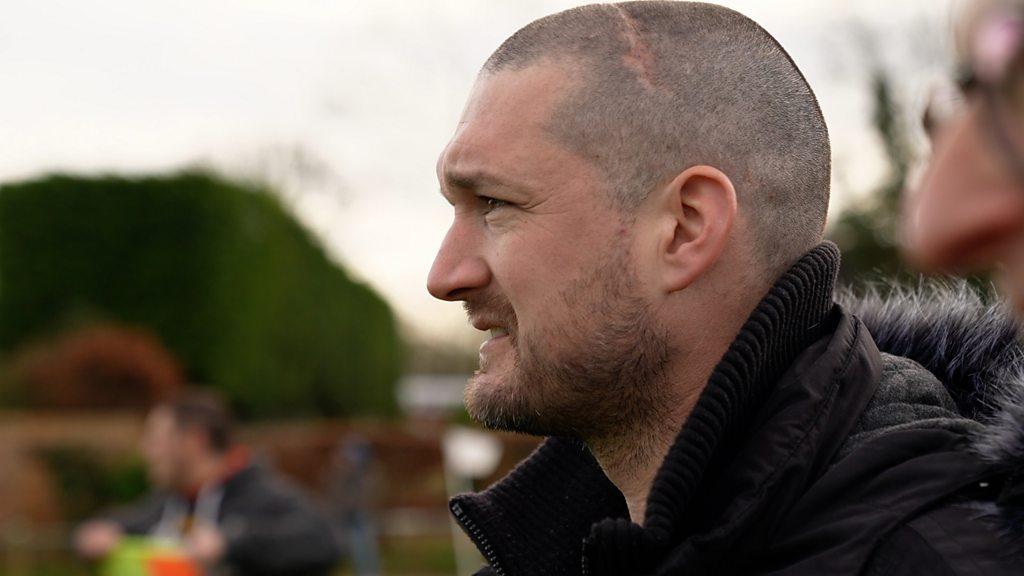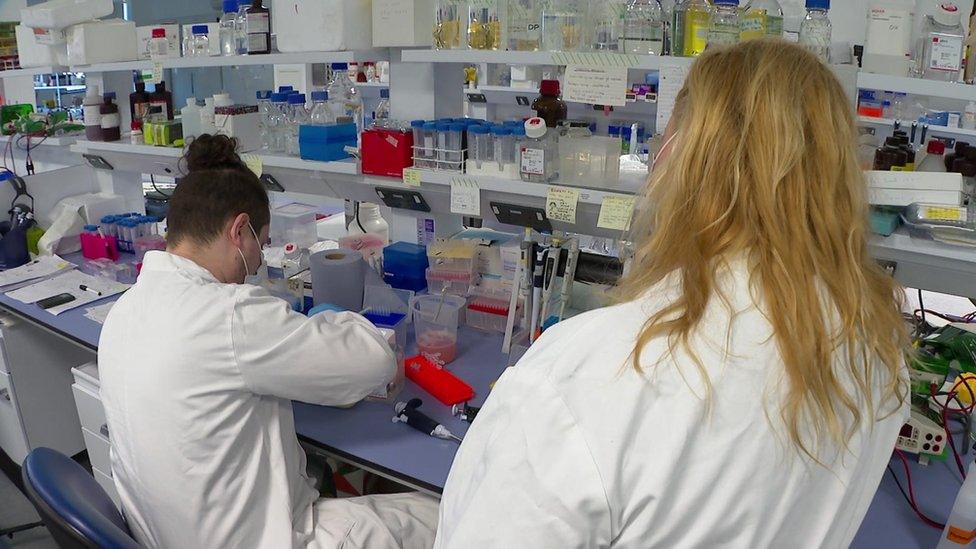University of Bristol research could lead to earlier detection of brain tumours
- Published

The research aims to help diagnose brain tumours earlier and improve survival rates
Brain tumours could be detected at an earlier stage through a blood test, as part of University of Bristol research.
The university said detecting a tumour earlier could lead to more effective and personalised treatment options.
Researchers are looking to develop an affordable "point of care" blood test, which would be carried out by GPs.
Dr Johanna Blee said: "We are hopeful this research will ultimately aid the development of a simple blood test for brain tumours."
The research, published in the The Royal Society, external journal, involves assessing the current use of biomarkers in the detection of glioblastomas (GBMs), the most common type of malignant brain tumour among adults.
New mathematical models could be used to examine and compare biomarkers and test for brain tumours as they emerge, researchers say.
'More effective treatment'
"Our findings provide the basis for further clinical data on the impact of lowering the current detection threshold, to allow earlier detection of GBMs using blood tests," said Dr Blee.
"We have also demonstrated how our models can be combined with other diagnostics such as scans to enhance clinical insight with a view to developing more personalised and effective treatments," she added.
The university says earlier diagnosis could help reduce NHS costs and improve survival rates by catching tumours before they grow larger and become inoperable.

Follow BBC West on Facebook, external, Twitter, external and Instagram, external. Send your story ideas to: bristol@bbc.co.uk , external
- Published15 July 2022

- Published15 April 2022

- Published22 December 2021
